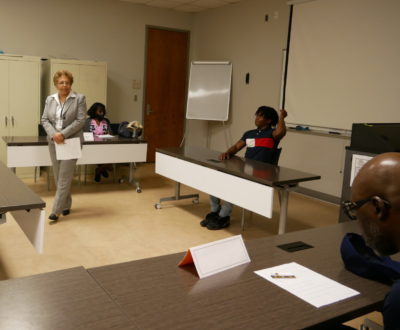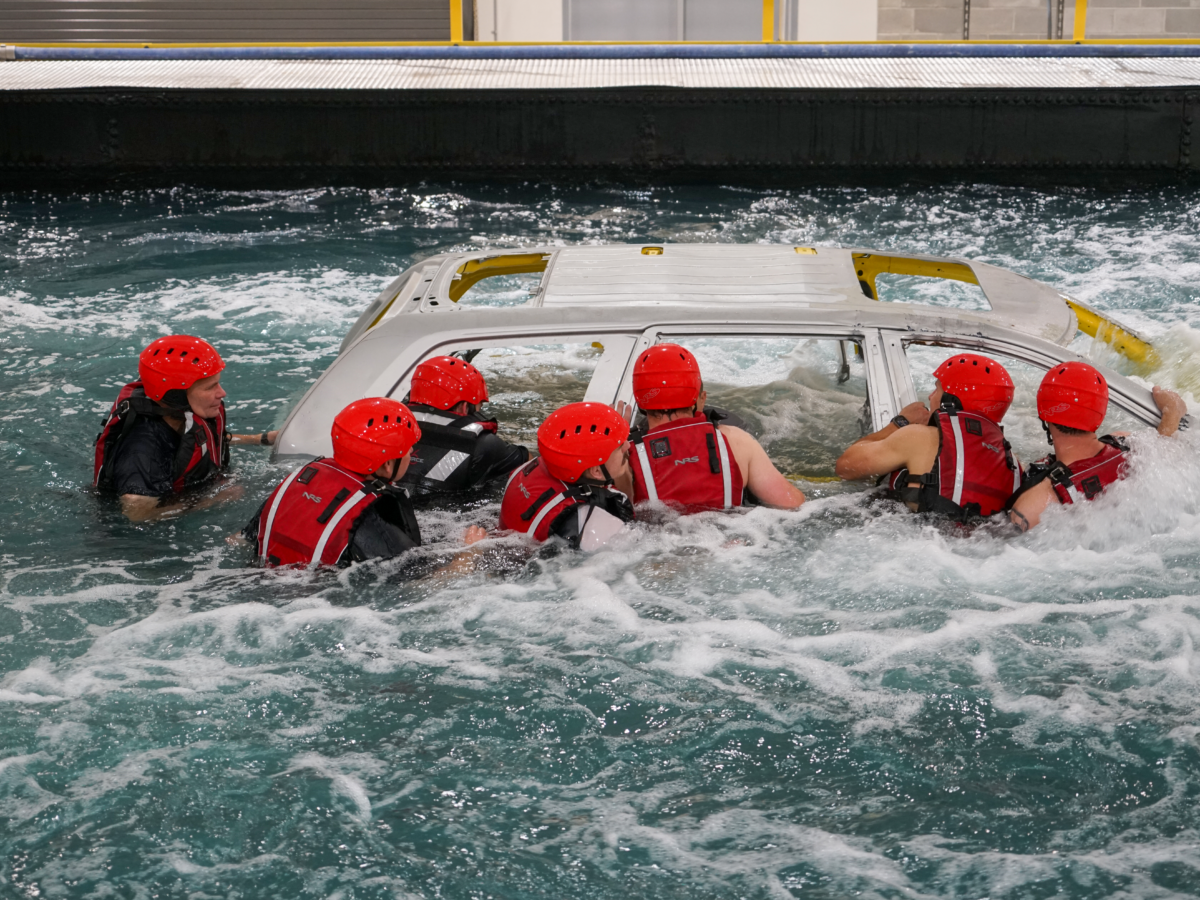
|
|
“Rope, rope, rope!” echoes off the walls of Fayetteville Technical Community College’s new swift water rescue training facility. Students repeat the phrase as they practice throwing out a line to a submerged car in the facility’s 140,000 gallon tank. The state-of-the-art center, which began offering classes in January, is the only one on the east coast. Since the opening, 248 students have taken classes at the center.
“We’ve got to be better prepared for disaster because of hurricanes and various things that are happening with the weather patterns and things of that nature,” said Dr. Mark Sorrells, president of Fayetteville Technical Community College.
The catalyst for creating the training facility came from an increasing need for people with water rescue training. In 2016, Hurricane Matthew hit eastern North Carolina hard, and the rescue infrastructure was overwhelmed. Two of the lead instructors at the current center were firefighters at the time, and one described the stressful situation.
“When Matthew hit, we realized how far behind we were. We had 500 calls in the queue, which is what the calls go into to wait for dispatch. We had every boat crew working, and we had every resource working… I was wearing my personal drysuit, because we didn’t have enough drysuits to put on rescues. The fire chief saw what we were doing, and he said, ‘We got to beef our program up,'” said Michael Bartch, one of the full-time water rescue instructors at the center.
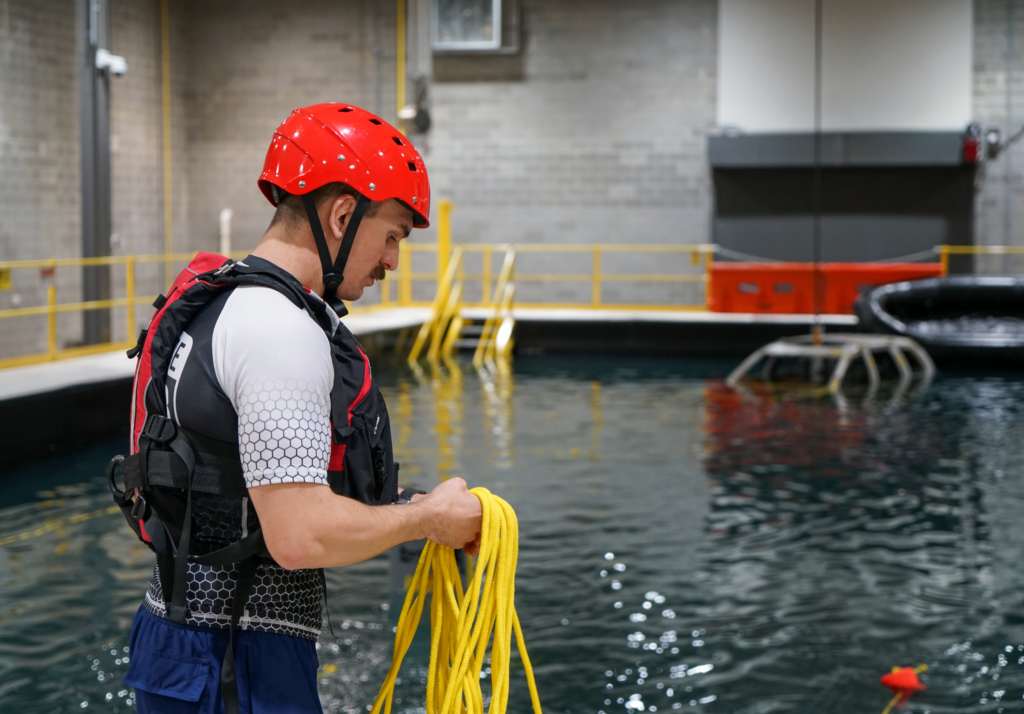
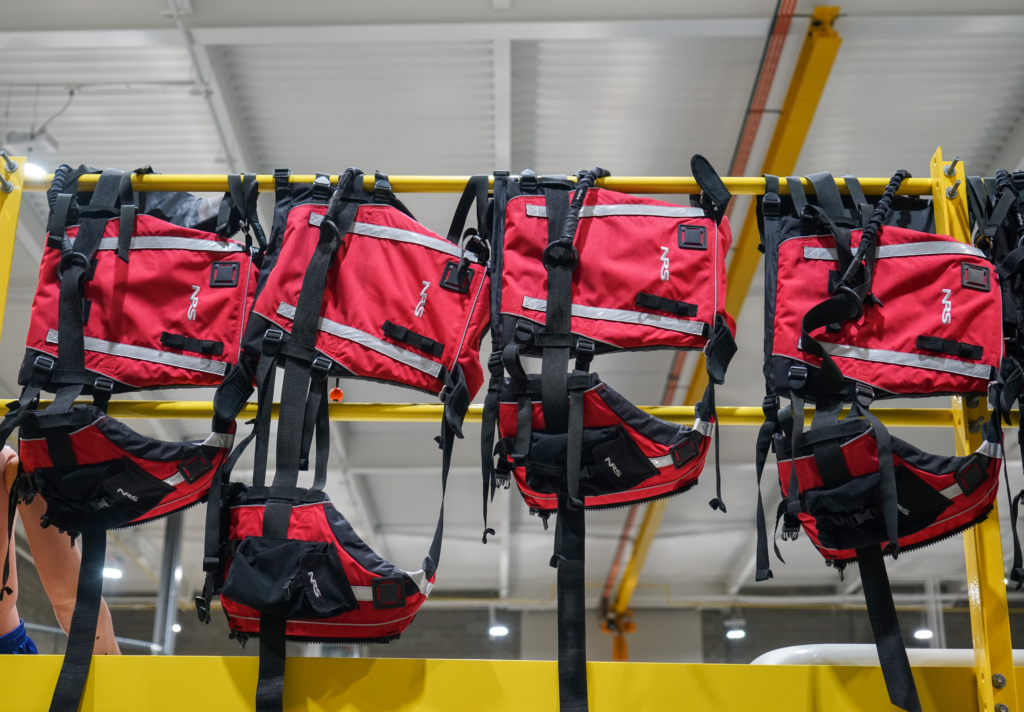
‘Beefing’ up a program
The demand for service programs at Fayetteville Tech has been steady. Cumberland County is home to Fort Liberty, the largest U.S. army base by population. Fayetteville also has the highest veteran population in the state, with veterans making up 16.8% of the population. Many of those veterans end up taking courses at Fayetteville Tech. Since opening, the swift water rescue center has already seen several military units come through for training, and they have more units scheduled in the coming months.
Years ago, the college started planning a new emergency training campus that now houses the swift water rescue center. Named the FTCC-Cumberland County Regional Fire and Rescue Training Center, it is a 30-acre complex that includes a technical rescue facility with a training tower, a four-story burn building for live burning exercises, an aircraft burn simulator, a trench collapse training area, and the swift water rescue training center. A rappelling tower with zip line capacity and two additional burn buildings are underway.
The swift water rescue center was not part of the original plan. The team heard about an indoor training facility in Georgetown, Texas. At the time, it was the only indoor training center other than the facility at Quantico, right outside of Washington, D.C. They went to visit and pretty quickly realized that they wanted to build a similar facility for their new campus.
“I come from a very rural area, and I’m very sympathetic to the limitations that rural communities have in terms of resources. Rural fire departments struggle, not only with personnel, but with having the resources to be able to really send people to the type of training that they need on a repetitive basis to be prepared for disaster,” said Sorrells.
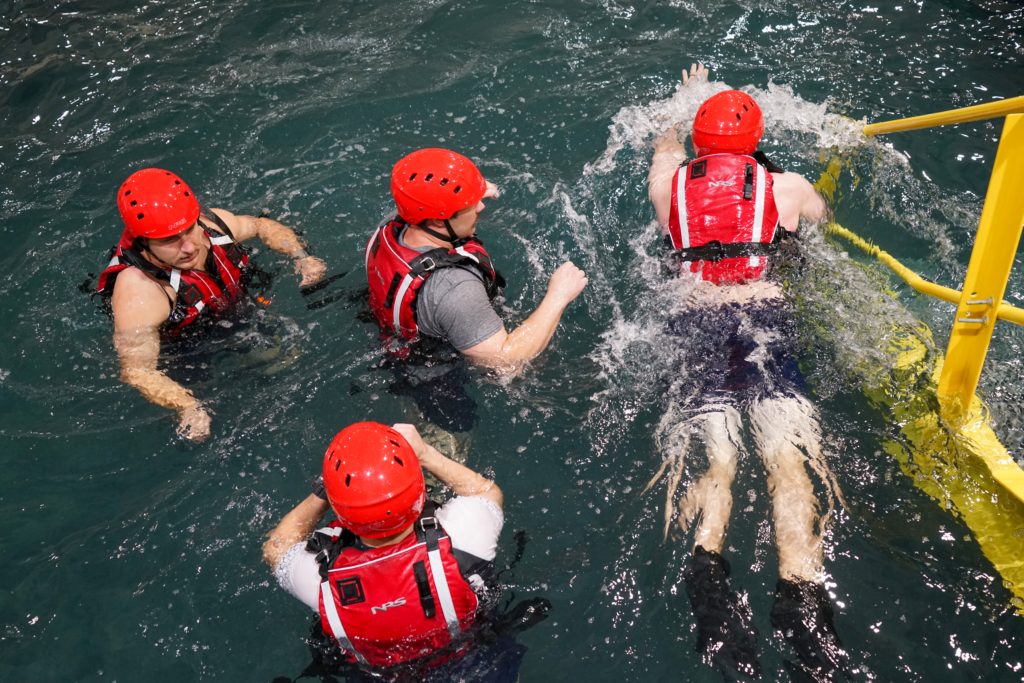
The swift water rescue training center and the larger emergency training campus was a joint project with Cumberland County and was fully paid for before the project began. The county donated the 30 acres for the campus and also gave an additional $10 million for the project. The project received $10 million in state bond money and $20 million from the General Assembly. The project is estimated to cost around $47 million once complete.
Simulating reality
In addition to the large tank, the swift water rescue center has several features to simulate the common realities people face in water rescue scenarios. The tank is equipped with pumps that can push water out at a flow of up to seven knots. Speakers surround the tank and simulate thunder. In combination with the lighting capabilities, instructors are able to simulate night and storm-like environments.
There are 12 courses currently available at the swift water rescue center, and many are held on nights and weekends. Their most popular course right now is skills day course, which includes training for the 30 skills needed to be deployable on an urban search and rescue (USAR) team by the state.
Michael Bartch and Stephen White are two of the lead instructors at the center and were firefighters for Cumberland County for over 20 years. Both were on USAR teams while serving and started teaching water rescue in 2009. Back then, there was no indoor facility locally, and they taught students out on the Cape Fear River.
“We had to teach on the river, so we were limited to what we could do. You can’t put cars in a river, you can’t block the river totally, you can’t limit access to people being able to enter the river, so when you’re training, you’re having to train around a lot of obstacles,” said Bartch.
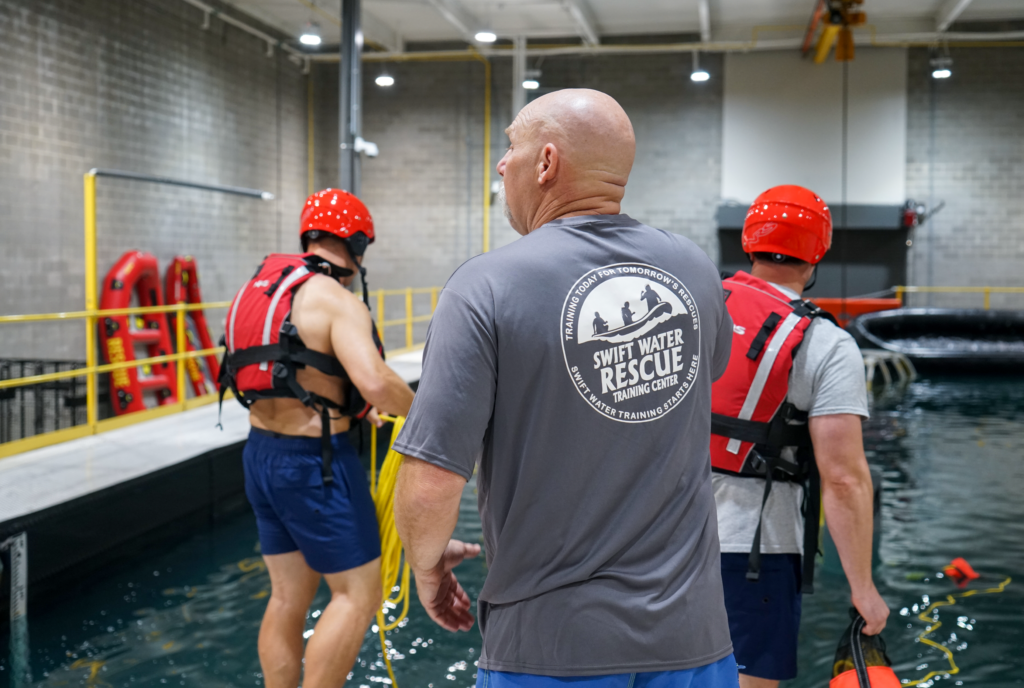

In order to get fast-moving water, Bartch and White used to take students to Lock and Dam No. 2 in Elizabethtown. The large boulders in the water created some moving water, but they were also hazardous. The classes were at the mercy of the weather, water levels, and wildlife. It took extra time to run students through scenarios because they would have to take the boat downstream and back.
Now, thanks to the center, skills are learned faster. Students are able to jump in the tank on one end, practice the skill, swim to the other side of the tank, and cycle back.
“They’re paying us to play in the water. I mean, let’s be realistic, the hardest day at work I have, I go to work and play in the water. So it’s not a bad job,” said Bartch.




